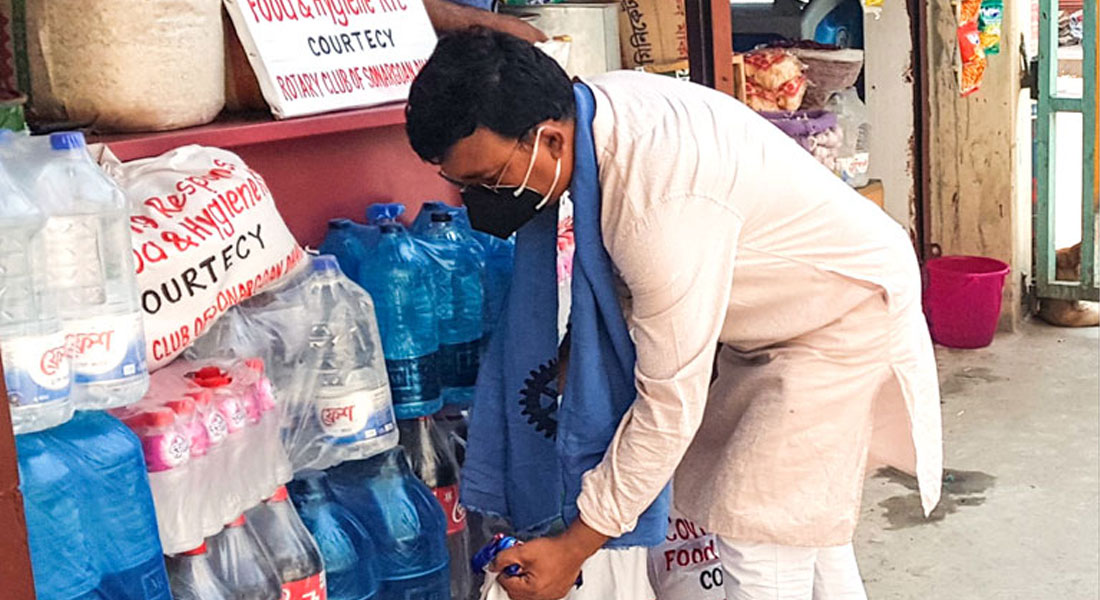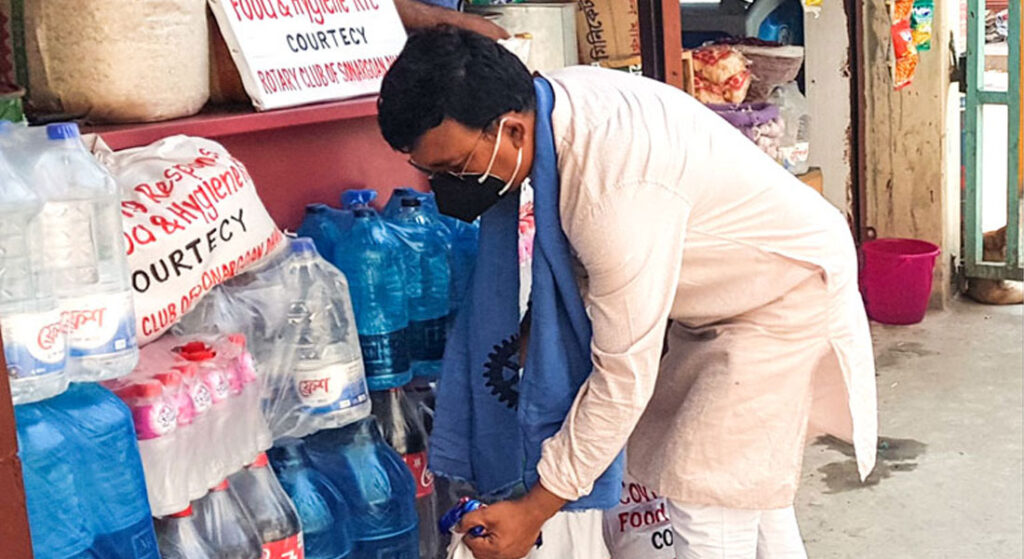Bangladesh officially imposed its Covid-19 lockdown on March 24, but self-imposed restrictions in movement and work from home, mostly in the private sector, began from early to mid-March. The term used was “general holidays”, so as not to incite fear in the population.

However, as the world suffered, so did we. We realised that the lockdowns that were put in place around the world, were now at our doorstep too. It was a mixture of excitement and fear. What would it be like to be stuck indoors day after day? Would the authorities enforce a strict lockdown? We would soon know. For now, it meant extra time with the family, longer lunches, more frequent tea times and a break from a busy life. How bad could it be?
My question was answered very soon. One day, I was walking along the empty streets and noticed a cycle rickshaw puller wiping silent tears from his eyes. I stopped and asked him the reason and he said that he was out of income for the past few days due to the lockdown and he was the sole breadwinner of his family. I walked away, leaving him to his misery, not quite knowing how to help.
The next day, another incident happened. A domestic worker I recognised from my apartment building, who was out of work due to the Covid scare, had come, quite hesitatingly, to ask for some rice from my apartment’s security guard. She had no food at home and needed to feed her child. She had come to him under the dark of the evening to hide her embarrassment, and the guard, another disadvantaged soul, was quietly helping her.
The two incidents were enough to jolt my conscience. I had seen daily workers in my neighbourhood going to work early in the morning and returning home in the evening. I had seen enthusiasm and exhaustion on their faces, but never this silent gloom. I now understood the full impact of the word “lockdown” for someone with much lower income than I, or those like me. What was a new and a somewhat exciting experience for us, a mere inconvenience that would make a good bedtime story for our grandkids, was nothing but hell for daily wage earners like domestic workers or rickshaw pullers. Being a Rotarian and wholeheartedly believing in our motto of “Service above Self”, I knew that something had to be done for these people and it needed to be done fast.
What was a new and a somewhat exciting experience for us was nothing but hell for daily wage earners.
At our Rotary clubs, we believe that ‘Rotary is where neighbours, friends, and problem-solvers share ideas, join leaders, and take action to create lasting change’ and I wanted to implement this belief through action. On March 23, I sent a text to all my Rotary and non-Rotary friends, shared my emotions, appealed to them to share their thoughts and support me when needed. Past presidents from my club, Halima, Mahjabeen, Masood, and other members, Taher, Mahfuza, Zakia, Sayeed and Aziz called or sent a text response immediately and offered help and encouragement to proceed for whatever I thought would be good for the people in need. They would provide assistance and financial support online while I would mobilise a group of volunteers who would kickstart the work on a small scale. This trust boosted my confidence further and encouraged me into action at a time the whole country was locked down in fear and silence.
A lone warrior
I knew I had to start the mission as a lone warrior. I started work on March 23 by going to various neighbourhood slums and far flung areas where I knew daily workers lived. I got support from volunteers who would come with me to feel the pulse and analyse the gravity of the situation. Our job was not poverty alleviation, nor was it hunger reduction for the poor. It was simply to help the worst affected during the Covid pandemic. We knew that the government was planning relief work for those hit badly by the lockdown and the pandemic but its implementation would take time. Until then, just to ensure that these people do not become victims of starvation, we were there for them.
Our plan was to distribute food and hygiene kits to the needy and this Covid-19 response was perhaps the first of its kind for a Rotary club in Bangladesh. We listed 10 areas where we could work, made quick assessment and put together a list with cell phone numbers of people who were to receive emergency food and hygiene kits from us.
Mobilising support
Once that was done, we needed to put in place a collection system that respected social distancing norms so crucial to this pandemic. This was challenging but with the help of the volunteers of Shamajik Council — a local organisation — a plan was devised quickly and creatively.
We first identified some grocery stores near the homes of the people on our list. We then negotiated with the shopkeepers and devised a plan where they would pack care packages for us consisting of basic food and hygiene products, to last the family at least a week. Next, we gave tokens to the receivers, who had to drop them into a basket kept at the grocery store to prove they were the bonafide beneficiaries. We then called the receivers from our list and asked them to pick up the kits at different times so that a crowd could be avoided. The receivers dropped the tokens in the basket kept at the counter; the shopkeeper placed their package in the basket.
Next came the challenge to reach relief to those who were bedridden or too old to come out and take the packages from the shops. We arranged door-to-door service for these people, knocking on their door and placing the care packages outside their doorstep.
Covering the not-so-poor
Once the slums were covered, we started thinking about those people who appeared to be well off but were not; people who had jobs but no savings they could live off. Because these people were not daily wage workers, they did not quite come under the umbrella of the needy. However, needy they were, they were too embarrassed to ask for help. We knew that these people were under pressure and needed our help. We got their phone numbers, but protected their dignity, using not their names but only the last digits of their phone numbers to identify them. Care packages were distributed to these people too.
The initiative, since then, has gained a lot of momentum and is now operating in full swing. Many others have joined this journey with us and are working alongside us to help those still in need of assistance. The project that started with helping 115 households, grew in a week to 1,500 households and now many Rotary clubs — I would surmise it to be nearly 100 Rotary clubs across Bangladesh — are providing such relief, either on their own or with support from the district, and thousands of families are benefitting from it. Our club alone has reached relief packages worth 300,000 Taka to the beneficiaries.
We’ve now started giving small capital to those who have lost their livelihoods… to start a vegetable stall, or similar small ventures, that will keep their families going.
The writer is a past president of RC Sonargaon Dhaka, RID 3281, Bangladesh. He has been a Rotarian from 1999, and when he was president of his club in 2010, he started a major cervical cancer screening project. He can be reached at hoqueka@gmail.com









